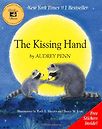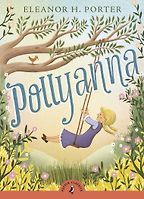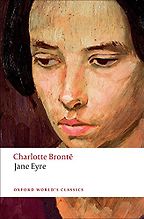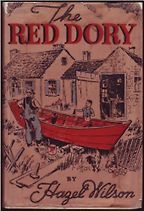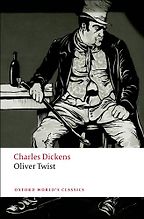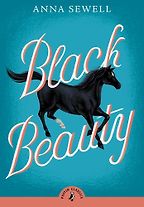You’ve written books both for very young children and for teenagers. For which age range are the books you’re choosing today?
My love is for teenage books. That is my passion. I only accidentally wrote for children. It’s much, much harder writing for young children.
Why?
First of all, you have a lot more rules to follow. Each book has to be 32 pages long. You’re limited in your vocabulary, you’re limited in your sentence structure, and you’re limited in how many characters there are and what they can understand. I never want to be preachy, I never try to jam a lesson down anybody’s throat. I try to hit an issue that is universal, and not just for a singular child. I always, always take my hint from something that I see or hear. I don’t use my imagination at all. I wait until I see or hear something and then I go, “Wow, that would make a perfect book”. But you have to be very, very careful what you say and how you say it, especially since this business of political correctness. Everybody has become so touchy – to the point of ridiculousness.
You find you can’t write what you want to any more?
Very often, yes. The last book I wrote, Chester Raccoon and an Acorn Full of Memories, should be in every school and every home in the world. Every child loses someone or something – whether it’s a pet or a friend or someone at their school. And they’re terrified. They don’t understand. In this book, Chester Raccoon loses Skiddil Squirrel. Mrs Raccoon, instead of talking about death, teaches Chester how to make a memory. And it has been miraculous in what it’s done for kids. It’s just been wonderful. But some stores won’t place it on their shelves because they’re afraid of the subject matter. With older kids, it’s a lot easier – though I write historic fiction, so again I’m locked in. I have to deal with historic facts, not just fantasies.
Tell me about the books you’ve selected.
It was very hard to bring it down to five. I’m from a family – an extended family – that is so bound up in literature. I went from one home with a library to visiting an uncle’s home with a massive library, to a grandfather’s home with another. I was just so blessed in that. But when I was doing this for FiveBooks I did a bit of soul-searching. I learned a bit about myself. I realised that all the books I loved and read more than once were about someone who had a problem. They had to climb out of their situation. The books were about very strong people who made it on their own and taught the people around them. I had to do the same thing. I was reading books about myself – and I never realised that before.
Do you want to talk about what happened to you?
I was born disabled, with juvenile rheumatoid arthritis [JRA]. When you have a disability and you’re young, you hide it as much as you can from other children. When you’re in pain, you learn to fake it. You become a very good actress because you don’t want anybody to know you’re different. For example, when everyone was walking home I would lie and say, “I have a piano lesson”. And then I would sit on the ground and shriek because I was in so much pain. I would wait for it to mellow out again, until I could walk, and then I would get up and walk home. In some ways it was a very lonely life.
It sounds heartbreaking.
It’s hard. In September I had my 29th surgery. It was to replace a bone in my thumb. There are times I just want to say, “Enough is enough!” But you can’t. You just keep going.
What’s your first book?
My favourite book of all when I was growing up was Pollyanna. Pollyanna was the daughter of a missionary – she had only one parent, her dad. She was very poor and she used to get things out of a missionary barrel. She wanted a doll but instead she got a pair of crutches and she started to cry. Her father said, “Let’s play a glad game”. She said, “There’s nothing glad about crutches”. He said, “Sure there is, you can be glad you don’t need them”.
Then her father died and she went to live with a very rich aunt, who didn’t like her. There was a carnival going on and Pollyanna snuck out the back window. When she was sneaking back in she fell and she was crippled. But she turned the entire town into glad town – even her aunt.
I too decided to play a glad game. Every time something happened I found something to be glad about. I really became quite obnoxious, always saying, “I’m glad this … I’m glad that…” I started taking classes down at Duke [University] and they nicknamed me Pollyanna. I had forgotten about the book and I went back and reread it.
What about your next book?
My next one is Jane Eyre. She was orphaned and sent to a very rich aunt, who had her own very selfish children. Jane Eyre was not the perfect child and she was sent to live in a girls’ school. She made one friend, but unfortunately the little girl died, so she had to toughen up. She grew up there and learned everything she needed to know about teaching. She was a very good artist, she played a little piano, she learned French. When she got older she became the governess for a little French girl who was the ward of a man who lived in a manor. They fell in love, but it turned out that he had a wife, who was insane and lived in the attic. So Jane Eyre ran away and found out she had an uncle who had left her a great deal of money. But she couldn’t get the man out of her mind, so she went back. She found out that after she left, the man’s wife had set the place on fire. The wife had died in the fire, and it had blinded him. They were still very much in love and they married. And they lived happily ever after.
Jane Eyre came out of a very bad situation, but she was a very strong child because she had to be. They put her through a lot; they treated her very badly. She just kept looking forward. She had the idea that there must be something better.
My older brother passed away when he was 21. A bunch of them had been swimming in the James River. You’re not supposed to go swimming there, and one of the girls got caught in a whirlpool. My brother was a lifeguard so he jumped in and got her out. But he got caught and pulled under and drowned. I had just turned 13. He said to me once, “There is no such thing as ‘why’. You can ask why till the cows come home, and you’ll never get an answer. You just have to wait for the ‘because’…”
I danced as a career until the JRA got so bad it was the end. I remember thinking, “OK. Where is the ‘because’?” When I got very sick, I had a four-year-old. I had to move back near my mom so she could help out. One day I took my son to the park, and we were on a little choo-choo train. The train stopped because there was an animal sitting on the track that wouldn’t get off. I went to look, and it was a mother raccoon with her baby. You can figure out the rest… it’s called The Kissing Hand [Audrey’s first New York Times bestseller].
Raccoons really do that?
Yes, she took the little baby’s hand, and rubbed her nose in it, and he put his hand on his face. They do it so that he has his mother’s scent, so if she has to walk away, he can smell his mom and not be scared. If I had been dancing I wouldn’t have seen it. And millions of kids have been helped by it, so I guess I wasn’t supposed to dance. That was the “because”…
Book three.
The Red Dory. It’s about a young boy who spends the summer with his grandfather, who is a professional fisherman. The boy is about 10 years old and I was about 10 when I was reading it, and an avid fisherman. We used to go out to Annapolis and down to Carolina and fish. I got to go deep-sea fishing with my uncle – that is what he did for a living.
In the book, they catch a beautiful sailfish. His grandfather says, “The beauty is in the fight – bringing it in, letting it go, bringing it in, letting it go”. He taught the youngster how to do it, and the youngster worked really hard. They came in that night and celebrated. It was really an exciting thing.
The man who lived next door to his grandfather did not fish. His granddaughter was visiting him, who was the same age as the boy. They were friends. They were sitting on the dock, and they asked permission to take the boat out, just to row. And the boy said, “How come you and your grandfather don’t fish?” She said, “I’m not supposed to talk to you about it”. And the boy said, “I don’t understand, it’s great fun, you want to come with us?” And she said, “No I don’t”.
So the boy got curious and said, “You should see it! He really fought and we fought”. And she said, “Why do you think he was fighting?” And the boy said “I don’t know”. And she said, “He was probably fighting to get free”. And the boy said, “I guess so”. And she said, “If you were on the hook, would you fight to get free?” He said, “I suppose so”. And she said, “Do you think the hook hurts them?” And he said, “I never thought of it”. And she said, “Think of it now. Do you think the hook hurts them?” He said, “Maybe it does, it must”. And she said, “Then don’t you think that, if you’re going to catch it, that it would be better for them to just bring it up rather than having them fight?” And he said, “Yes, but the fun is in the fighting”. And she said, “The fun for whom?” And he said, “The fun for us”. And she said, “But what about the fish? What is he going through? How many times does he have to fight? Why does he have to fight so hard, when in the end he’s going to lose?”
And so the boy comes back from this boat ride with an entirely different attitude about what it must be like to have to fight for your life and to fight to exhaustion for your life. When I was reading what the little girl was saying, I remember saying out loud, “Yes. I wonder”. And my father came in and he said, “What are you wondering about?” And I had him read the page. I remember he started crying. I think it was the first time he understood.
Oh, that’s sad.
But for me it was a breakthrough book, because somebody put into words what I couldn’t. I loved that book. How many have I got left?
Two.
I’m going to go with Oliver Twist. I was raised on all of these books, but I loved Oliver Twist. I have always believed that people, no matter how bad they are, when they see a really good kid in trouble, they’re going to help.
And it continues your theme of the hero or heroine being in a very tough situation?
Absolutely. He ends up in an orphanage, but he doesn’t give up. He makes it to the people he’s supposed to make it to. I love it. My favourite thing is every morning when I finish my first cup of coffee, I say to my assistant, “Sir, may I have more please?” and he goes “More? You want more?”
One more book to go.
I have to go with Black Beauty. It’s very tough for me to read, because of the cruelty. I can’t stand cruelty. I don’t understand it, I will never understand it. Never in a million years. But if you want to take my illness and you want to equate it with anything, you can equate it with Black Beauty.
Do you want to explain?
There are times that he is loved and admired, and times when he is beaten and abused. Then he’s loved and admired again, and then beaten and abused. In his head, in his heart, he always remembers the times he’s loved and admired and in the end, of course, he’s given his freedom and he’s loved and admired. But he’s got so much heart, and so much will.
I was speaking at a school once and the principal came up to me at lunch and she said, “At the end of the day, I’d like you to meet a little fourth grader.” And this little girl came shuffling up to me and she said, “I have JRA too, but I didn’t know that when I grew up I could have a career and I could have children. And you have both! And now I know I can”. That’s so terrific. She actually runs a zoo from her bed, via Facebook. She’s doing neat things. But this is a disastrous disease.
And it’s really a disease of ups and downs – that’s why it’s like Black Beauty?
Yes. I hate the parts where he’s not treated well. It just reminds me of the really, really bad times. But it was only after I was putting this list together that these things dawned on me. I never thought about them before. That’s not why I read the books. I read them because I loved them. But in going over them I was thinking, “Oh, my gosh, Jane Eyre was a child with a problem; Black Beauty was a horse that was abused; Pollyanna was a little girl that had to come through all this stuff; Oliver Twist got put in an orphanage by mistake; and the little boy in Red Dory had to look from the fish’s point of view about pain, and what it was like to fight to live”.
May 29, 2011
Five Books aims to keep its book recommendations and interviews up to date. If you are the interviewee and would like to update your choice of books (or even just what you say about them) please email us at [email protected]
Support Five Books
Five Books interviews are expensive to produce. If you've enjoyed this interview, please support us by donating a small amount.
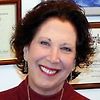
Audrey Penn
Audrey Penn is a bestselling children’s author. Her most famous book is The Kissing Hand, the first of the Chester Raccoon series, written for very young children. She is also the author of the Blackbeard series, historical fiction for teenagers
audreypenn.com

Audrey Penn
Audrey Penn is a bestselling children’s author. Her most famous book is The Kissing Hand, the first of the Chester Raccoon series, written for very young children. She is also the author of the Blackbeard series, historical fiction for teenagers
audreypenn.com

